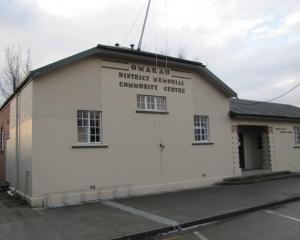The Local Government Commission held a hearing in Alexandra yesterday to consider appeals on the Central Otago District Council's final proposal to retain the status quo for representation - going against what an independent panel recommended.
Four appeals were made on that proposal, triggering the commission's involvement.
Former Central Otago mayor Malcolm Macpherson, former council business development manager Jono Gadd, former councillor and community board member John Rowley and Clyde resident Glen Callanan fronted up to speak to their appeals yesterday before commissioners Grant Kirby, of Kaipara Harbour, Anne Carter, of Wellington, and chairman Basil Morrison, of Paeroa.
Dr Macpherson said he thought the current model of representation was broken and with the council approaching its 25th anniversary, it was time to look for a change.
He said ward-based elections, with which the council proposed to continue, would ''dumb down'' a local authority, as it meant the ''most electable'' people from each ward would be elected over the most electable from across the entire district, as happened with more widely-based elections. An argument against at-large elections was the potential for the over-representation of large towns such as Cromwell and Alexandra and the under-representation of small places like the Teviot Valley and the Maniototo.
Citing his experience of Southern District Health Board and Central Lakes Trust elections, he said both organisations held at-large elections and members covered a wide geographic area, not just larger centres, such as Dunedin or Queenstown. He also said the district was relatively easy to govern and eight councillors should suffice.
Mr Gadd echoed some of Dr Macpherson's points and said it should not have been up to the council to decide its own fate.
''It was to be expected that council would act largely in a self-serving manner to retain the status quo. It's like asking the foxes to vote for the wellbeing of the chickens.''
Mr Rowley, also a member of the independent panel but not representing it yesterday, reiterated Mr Gadd's comments.
Mr Callanan floated the idea of a single board to govern the whole district.
The council had been reviewing how it represented its constituents, as required six-yearly under the Local Government Act 2001, in a process spanning more than a year.
Recommendations by an independent, council-appointed panel were released in April, after public meetings.
It recommended councillors should be elected at large instead of by ward, and a reduction from 10 to eight. It also recommended each of the district's four community boards comprise six members and the Roxburgh Community Board be renamed the Teviot Valley Community Board.
Councillors chose to test the water by putting out a proposal agreeing with the recommendations for formal public consultation, to attract more feedback from residents. Only 1% responded to the panel. More than 100 submissions were received. Following consideration of those, council chose to retain the status quo on the casting vote of Mr Lepper.
The commissioners have until April 10 to make a decision.












